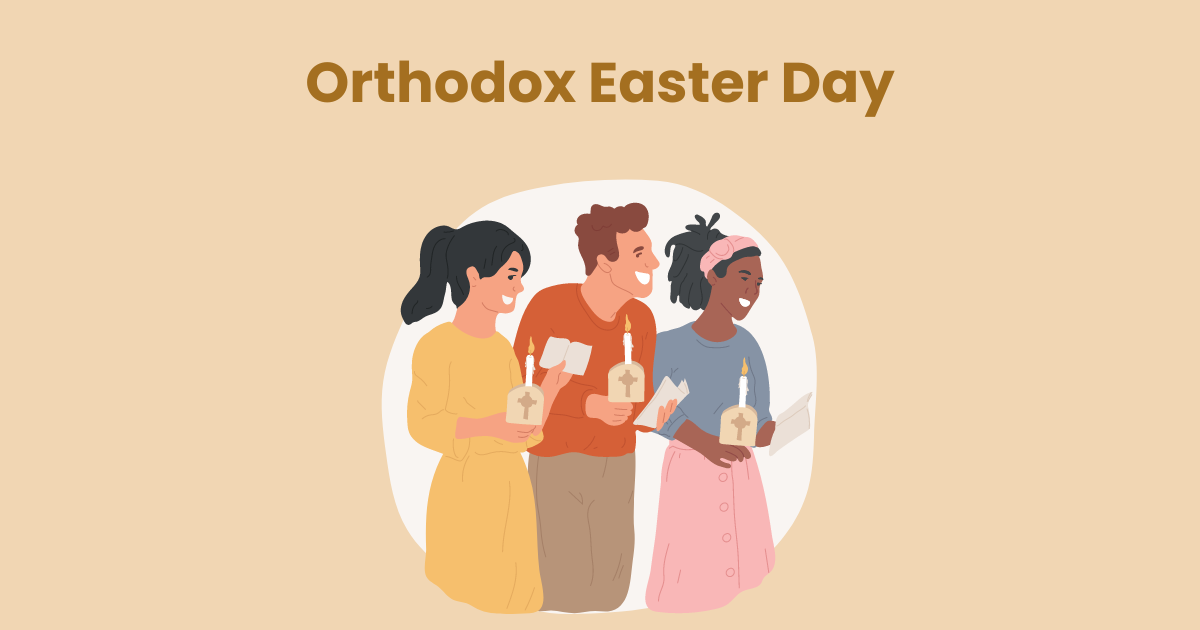Many of you might find it difficult: there is Easter, but how do we still need Orthodox Easter Day?
So confused sometimes, right?
To help you understand the reasons behind this, this article will fully explain to you what their differences are, their meaning, and how people celebrate Orthodox Easter Day.
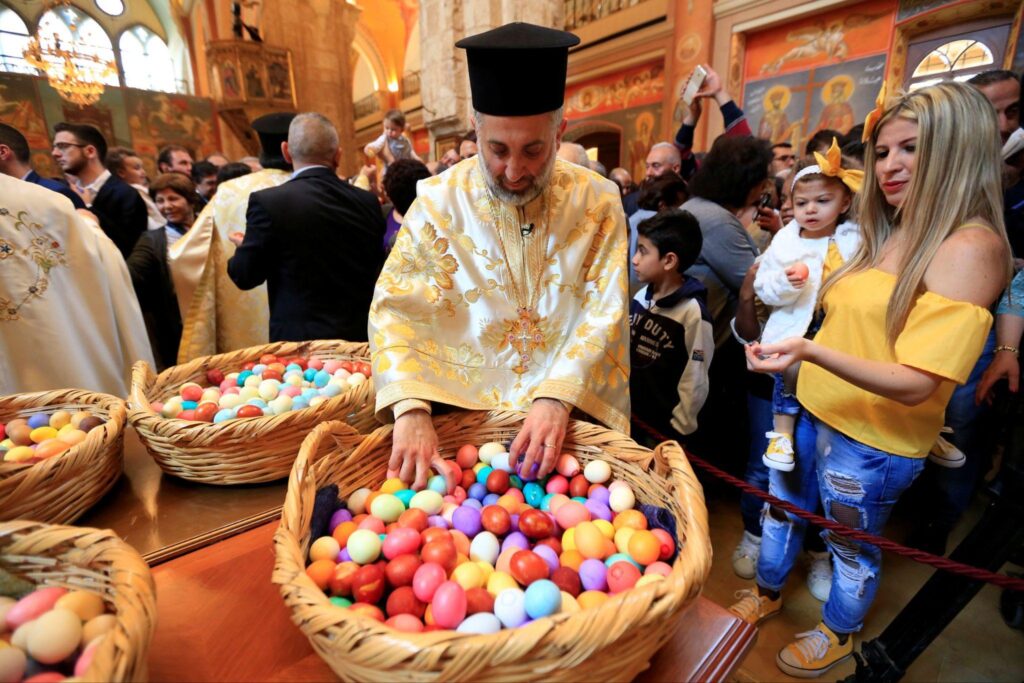
Table of Contents
Orthodox Easter Day Meaning
Orthodox Easter Day and Easter actually celebrate the same thing – the Resurrection of Jesus Christ – one of the most significant events in the Christian Calendar. The only difference here is the date. The Western world celebrates Easter in April, while Eastern Europe, Africa, and the Middle East hold the festival later. It’s because Easter doesn’t take place on the same day every year, thus leading to different calendars, Julian or Gregorian determining when Easter day should fall on.
What is the Orthodox Easter Day?
Orthodox Easter Day, or “Greek Easter”, follows the Julian Calendar – which was designed by Roman emperor Julius Caesar in 45 BC – based on the time it takes the Sun to go around the Earth. By contrast, Easter, according to the Gregorian calendar used by the United States, is thought to be more accurate.
Easter is celebrated on the first Sunday following the first full moon after the vernal equinox (around March 31st, 2024). In the meanwhile, Orthodox Easter Day 2024 will fall on May 5 because the Eastern Orthodox Church reckons it must happen after the Jewish celebration of Passover – as, in the Easter story, Jesus observes Passover before his death, which ends after nightfall on April 30, 2024.
What To Do During Orthodox Easter Holy Week
Like Easter, Orthodox Easter Day is filled with religious and joyous activities. If you want to fully enjoy Orthodox Easter Day, you should consider completing the activities below:
Painting Easter Eggs
It is customary to have red eggs and “tsougrisma” to welcome Easter. Here, Easter eggs are dyed a brilliant red, symbolizing the blood of Christ and the promise of resurrection. The fun part? Dyeing them yourself on Holy Thursday – a tradition that’s both beautiful and meaningful.
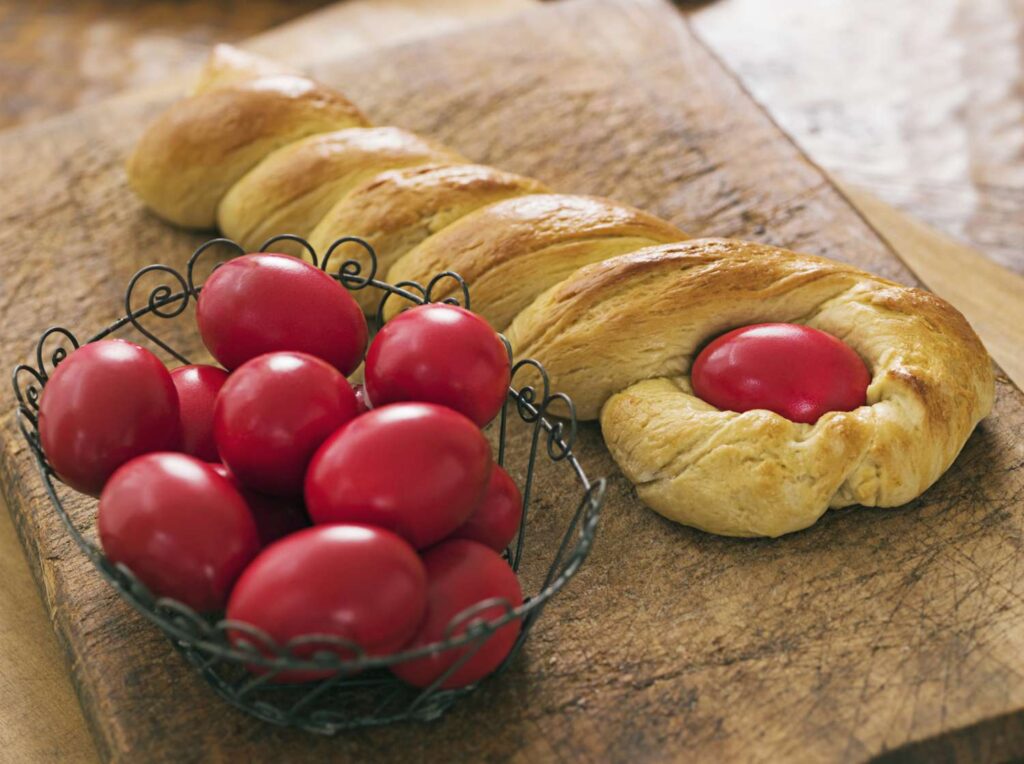
Fasting
This might sound unfamiliar to many people, but this period, known as Lent, lasts seven weeks before Easter of not eating animal products is an Orthodox tradition. This a time for intensified prayer, repentance, and spiritual growth, symbolizing the 40 days Jesus spent fasting in the desert.
Eating Magiritsa Soup
Magiritsa soup is a traditional Greek dish that is commonly consumed during the Easter celebration in Orthodox Christian communities. It is specifically enjoyed on the night of Holy Saturday leading into Easter Sunday. Magiritsa is unique in that it includes lamb offal and is traditionally prepared to break the fast observed during Lent.
Attending Church Ceremonies
Going to church is obviously a critical part of the festivals, and important services start on Good Friday. On Holy Saturday night, before the Orthodox Easter Day, The solemnity begins with the Midnight Office, and the Resurrection is announced at midnight. The faithful participate in a procession, and the Paschal Vigil includes liturgical readings, hymns, and prayers celebrating the victory of Christ over death. More importantly, church bells ring, and fireworks and crackers go off to mark Christ’s resurrection, which will be held in the early hours of Easter Sunday when celebrations begin.
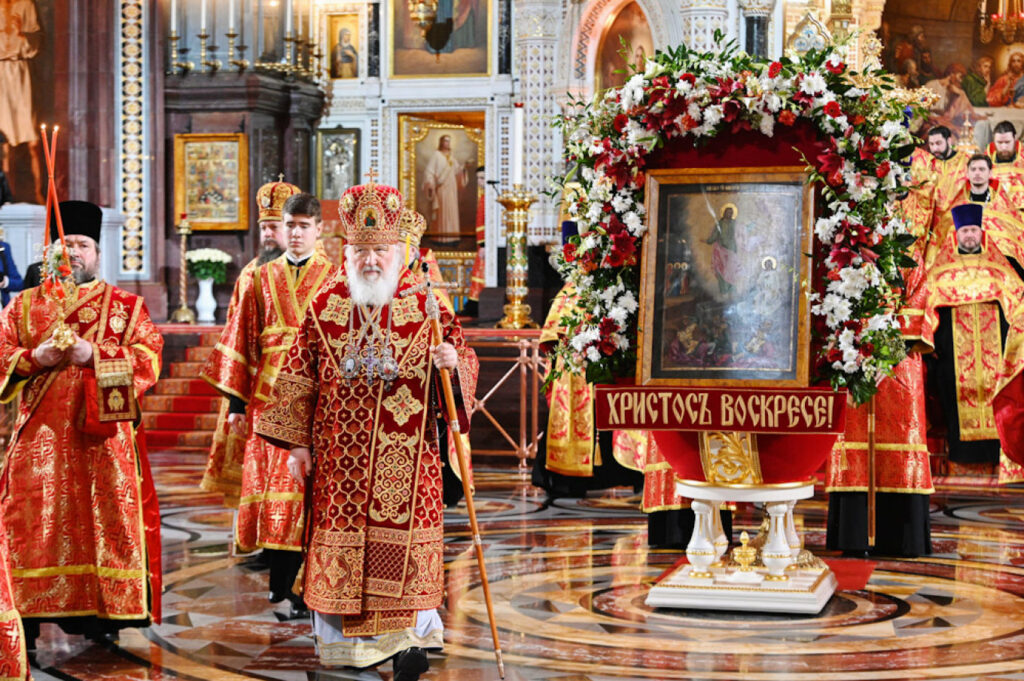
Lighting Candles
During the midnight church service, people of all ages buy or make their own Easter white candles and take them to church. During the ceremony, the priest lights a candle representing Jesus’ eternal flame, and everyone lights their candles from it. After the service, people carefully carry their candles home and use the flame to make a black cross on their house as a way of blessing themselves.
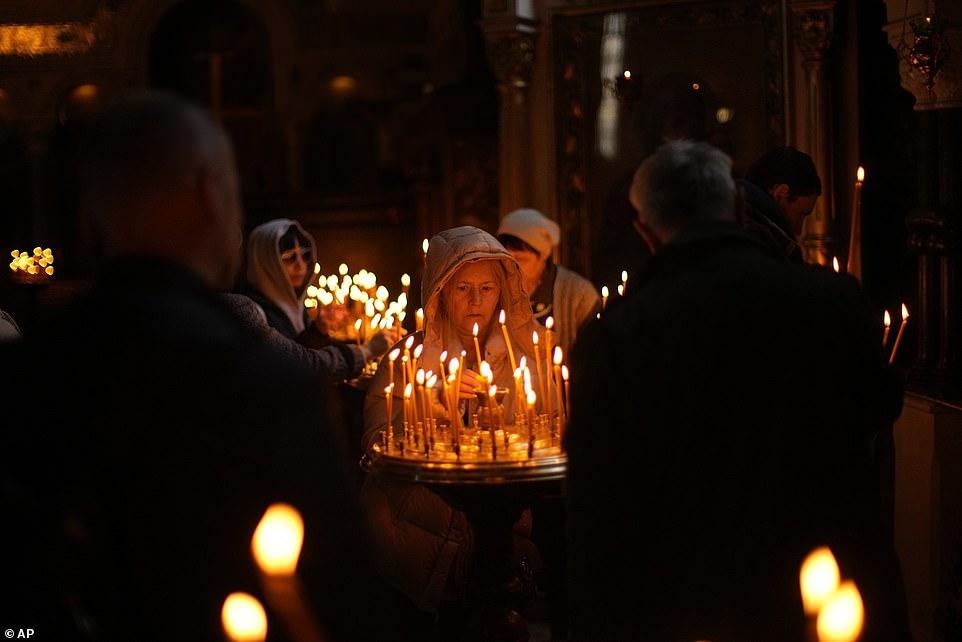
Enjoying the Feast
After Lent ends, everyone gathers for a festive feast, roasting lamb, enjoying traditional side dishes, drinking wine and ouzo, and singing. The feast often includes a variety of special and traditional foods, which might differ from different countries. Some must-try dishes are:
- Roast Lamb: The Lamb is a significant and symbolic dish in many Orthodox Christian traditions, representing Christ as the Lamb of God. Roast lamb is a popular centerpiece for the Easter feast.
- Tsoureki: Tsoureki is a sweet, braided Easter bread that is often enriched with ingredients like eggs, butter, and milk. It may also contain spices and citrus zest. It’s commonly enjoyed during the Easter season.
- Kulich/Paska: Similar to Tsoureki, Kulich (in Russian Orthodox tradition) or Paska (in Ukrainian Orthodox tradition) is a sweet, rich bread often baked in a cylindrical shape. It may be topped with icing and sprinkles.
Egg Cracking Competition
Don’t forget to play egg cracking competition with your family and friends before starting the feast. This custom involves participants tapping their coloured or dyed eggs against each other, intending to crack the opponent’s egg while keeping their own intact. The last person with an uncracked egg is considered the winner.
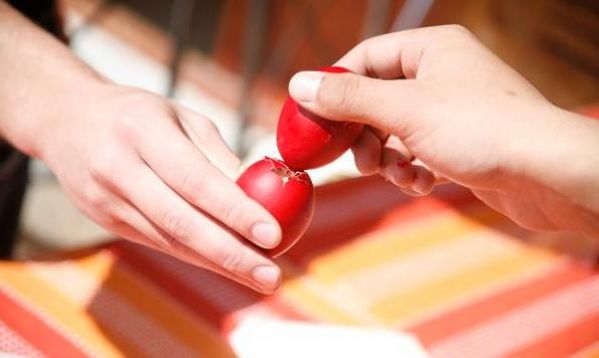
You May Also Like:
Bottom Lines
💡There are more things to learn about Easter. If you think you know everything about this festive event, let’s check with AhaSlides’ 75+ Easter Quiz. Feel free to customize the Easter Quiz with AhaSlide’s free in-built templates.
More tips and advice about events? Pick an event that you’re concerned with, and we’ll help you!
FAQs
Why is Orthodox Easter on a different day?
Orthodox Easter Day is celebrated differently from Easter as it follows Julian’s calendar. It, introduced by Julius Caesar in 45 BCE, differs slightly from the Gregorian calendar in its calculation of leap years.
Who celebrates Easter on April 16?
Eastern Orthodox Christianity celebrated Easter on April 16, 2023, according to the Julian calendar. Countries that officially observe Orthodox Easter are Bulgaria, Cyprus, Greece, Lebanon, the Republic of Macedonia, Romania, Russia, and Ukraine.
What is the difference between Catholic and Orthodox Easter?
Catholic and Orthodox Easter, while both celebrate the resurrection of Jesus Christ, share many similar traditions and exhibit only differences in date due to the use of different calendars. In addition, traditional foods on Easter and Orthodox Easter Day might vary from culture to culture.
Ref: BBC | History.com
